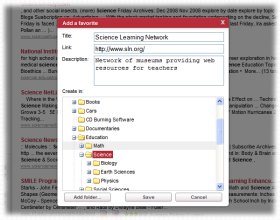|
Education
Web
Viewing 1-3 of 3 total results
• Water( turbines) • Fossil fuels ( engines) b. Cite examples that demonstrate the transformation of electrical energy into other forms of energy. c. Investigate and describe that some materials allow the quick, convenient, and safe transfer of electricity (conductors), while othe...
1
0
• Water( turbines) • Fossil fuels ( engines) b. Cite examples that demonstrate the transformation of electrical energy into other forms of energy. c. Investigate and describe that some materials allow the quick, convenient, and safe transfer of electricity (conductors), while others prevent the transfer of electricity (insulators). d. Identify and describe the energy transformations in simple electric circuits.
31
0
http://mdk12.org/share/vsc/vsc_science_gr38.pdf#page=31
mdk12.org/share/vsc/vsc_science_gr38.pdf#page=31
• Water( turbines) • Fossil fuels ( <span class="highlight">engines</span>) b. Cite examples that demonstrate the transformation of electrical energy into other forms of energy. c. Investigate and describe that some materials allow the quick, convenient, and safe transfer of electricity (conductors), while others prevent the transfer of electricity (insulators). d. Identify and describe the energy transformations in simple electric circuits.
experiences 3. Use strategies to make meaning from text (during reading) a. Recall and discuss what they understand b. Identify and question what did not make sense c. Reread difficult parts slowly and carefully and use own words to restate difficult parts d. Make, confirm, or adjust predictions e....
1
0
experiences 3. Use strategies to make meaning from text (during reading) a. Recall and discuss what they understand b. Identify and question what did not make sense c. Reread difficult parts slowly and carefully and use own words to restate difficult parts d. Make, confirm, or adjust predictions e. Look back through the text to search for connections between topics, events, characters, and actions in stories to specific life experiences
7
0
http://mdk12.org/share/vsc/vsc_english_grprek3.pdf#page=7
mdk12.org/share/vsc/vsc_english_grprek3.pdf#page=7
experiences 3. Use strategies to make meaning from text (during reading) a. Recall and discuss what they understand b. Identify and question what did not make sense c. Reread difficult parts slowly and carefully and use own words to restate difficult parts d. Make, confirm, or adjust predictions e. Look back through the text to <span class="highlight">search</span> for connections between topics, events, characters, and actions in stories to specific life experiences
difficult parts slowly and carefully b. Use own words to restate the difficult part c. Read on and revisit the difficult part d. Look back through the text to search for connections between and among ideas e. Make, confirm, or adjust predictions f. Periodically summarize while reading g...
1
0
difficult parts slowly and carefully b. Use own words to restate the difficult part c. Read on and revisit the difficult part d. Look back through the text to search for connections between and among ideas e. Make, confirm, or adjust predictions f. Periodically summarize while reading g. Periodically paraphrase important ideas or information h. Visualize what was read for deeper understanding i. Explain personal connections to the ideas or information in the text 3
10
0
http://mdk12.org/share/vsc/vsc_english_gr38.pdf#page=10
mdk12.org/share/vsc/vsc_english_gr38.pdf#page=10
difficult parts slowly and carefully b. Use own words to restate the difficult part c. Read on and revisit the difficult part d. Look back through the text to <span class="highlight">search</span> for connections between and among ideas e. Make, confirm, or adjust predictions f. Periodically summarize while reading g. Periodically paraphrase important ideas or information h. Visualize what was read for deeper understanding i. Explain personal connections to the ideas or information in the text 3
|
